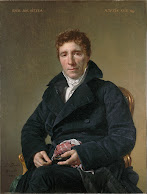[We have the following
announcement. DRE]
Call for Applications:
Colonial Legacies in Public Law: histories, theories, pitfalls and potentials. Tuesday, January 14, 2025 - Thursday, January 16, 2025, 12:00 PM - 5:00 PM. Organisers: Mohsin Bhat, Tanzil Chowdhury and Eva Nanopoulos.
The
Queen Mary Centre of Law and Society in a Global Context (CLSGC) is thrilled to announce a Masterclass with Professor
Philipp Dann that will take place on 14-16 January 2025.
The legacies of empire and colonialism are becoming visible everywhere these days. They shape various debates in public law but also indicate a new phase of globalization. The Masterclass will study these legacies and discuss their various dimensions and implications in comparative constitutional, public international and European Union law. The Class will draw on history and political theory, especially post-/decolonial theories to contextualize public law. It will use examples (such as the concept of development and democracy) to understand how empire and colonialism have shaped constitutional, international and European Union law and their scholarly reflection over time. But it will also turn to the future and ask participants to explore the potentials (and pitfalls) for re-imagining public law and its scholarship in the 21st century through the colonial lens. The Class is an invitation to rethink public law and the role of legal scholarship in a truly global way mindful of the broader legacies of modernity and colonialism.
Please note the start and end times listed are provisional and will be confirmed at a later date.
Overview of the sessions
Session 1: Comparative Constitutional Law, the Southern Turn and Reflexive Globalization – argument and framing
On the first day, the general theme of the class will be introduced and a framework of analysis established. This includes a basic engagement with colonial history and postcolonial thought as well as a reflection on the attention of public law scholarship to these dimensions so far. The class will discuss the overarching argument that a ‘Southern Turn’ and an understanding of colonial legacies provides a foundation to rethink the conceptual vocabulary of public law in the 21st century. Comparative constitutional law is a paramount area for such reflexive rethinking of public law theory.
Session 2: International law and the concept of development
The second day will turn to international law, the scholarship of which was the first to engage with colonial legacies. The class will situate and discuss Third World Approaches to International Law (TWAIL). It will then engage in particular with the concept of development as the central paradigm to structure South-North relations in the 20th century and study its implications for international institutional, economic and human rights law in shaping international law up until today.
Session 3: Constitutional thought in reflexive globalization: examples of temporality and democracy
On day Three, the class will return to the initial argument that basic notions and the conceptual vocabulary of public law are in (and need) a process of reflexive rethinking in order to grasp and structure the realities of public authority in the multipolar world of the 21st century. The class will turn to two examples that will demonstrate this process and possible outcomes of such reflexive rethinking. One is the perspective of time and temporality that allows us to highlight distinct elements of public law; the other example is democracy, a universally used notion, which still rests on conceptual considerations arising from 19th and early 20th century Europe even though it has traveled long ago.
Session 4: European Public Law and the legacies of Empires
Scholarship on the law of the European Union as well as the law of European states has been late in engaging with postcolonial perspectives. Day Four of the class will engage with reasons for this obliviousness – and then examine various colonial legacies in these two and entangled bodies of public law. Through the colonial lens, concept such as the state (and community of states), citizenship and the common market take on new contours and become more contested and less solid as generally assumed.
About Professor Philipp Dann. Philipp Dann is Professor at Humboldt University Berlin, where he holds the Chair in Public and Comparative Law. His research focuses on the role of law in the encounter and entanglement between South and North – in international, comparative and European law, in legal theory and legal history. He has published three monographs, ten edited volumes and is the editor-in-chief of the quarterly journal “World Comparative Law”. He is a co-founder of the ‘Law and Development Research Network’, a co-chair of the ICON chapter Germany and a principal investigator at research clusters ‘Contestations of the Liberal Script’ and ‘Varieties of Constitutionalism’. He has advised governments and other parties on constitutional matters and questions of law and development.
Format. The Class will be text- and discussion-oriented, based on a reader comprising texts by Professor Dann and other eminent works in the field. It will unfold through four sessions of 3 hours each. Each session will be composed of three elements: An introductory lecture by Professor Dann on the theme; discussions among smaller groups on the lecture and the assigned readings guided by an open set of questions; and a plenary discussion on the theme with Professor Dann.
Application process. The Class is addressed to academic researchers (including PhD and postdoctoral students) with research interests broadly aligned within the themes of the Class. Applications should be sent to Eva Nanopoulos: e.nanopoulos@qmul.ac.uk by the 20 September, with the following information: Name; Current institution; Country of origin; Gender; Statement of interest (500 words); CV upload (up to 3 or 4 pages).













